Mento's Month: February '20
By Mento 0 Comments
It's always exciting to have a leap year February, even if it is still the shortest and usually least interesting month, and the game industry has been busier backing out of commitments more than confirming same. That we're seeing 2020's first big releases come out towards the end of March doesn't inspire a lot of confidence, though you could argue that this is the tide going out before the big wave crashes down, i.e. the full new console reveals and launches. It's never a bad idea to take it easy regardless, and I've once again managed to get a lot of backlog headway done this month with nothing else to really distract me. I've even scaled way back on GB content, but that's largely because it's been a little underwhelming and repetitive of late (I'm sure it'll pick up once GBE's new hire happens, whenever that'll be).
As a little bonus extra this update, here's what my 2019 GOTY Top Ten looks like when compared to the Giant Bomb Community tastes (as determined by the recent Community GOTY poll results, which only include the top 100):
| Game | My GOTY Rank | Community GOTY Rank |
|---|---|---|
| Control | 1st | 1st |
| Bloodstained: Ritual of the Night | 2nd | 11th |
| Kingdom Hearts III | 3rd | 29th |
| Baba is You | 4th | 17th |
| Horace | 5th | DNR (Did Not Rank) |
| Indivisible | 6th | 58th |
| Shovel Knight: King of Cards | 7th | 84th |
| Electronic Super Joy II | 8th | DNR |
| Glass Masquerade 2: Illusions | 9th | DNR |
| Gato Roboto | 10th | DNR |
What this and previous "Community Comparisonz" suggest to me is that, rather than my picks being all that obscure or controversial (in the "only I seem to like this game" sense), it's more that there's always a huge number of releases in any given recent year that even super worthwhile ones can still drop out of the top 50 or top 100 of the year's most notable/widely-played games. It's no doubt why I still have a list a mile long of games from the 2010s I want to check out, even with the decade itself already fading into memory.
Indie Games of the Month
February comprised the 156-159 entries of Indie Game of the Week, outlined below:
Kentucky Route Zero (IGotW 156) did not grab me at all, and I suspect that has more to do with me than the game. A deliberately slow, methodical, abstract, downbeat, and deeply lugubrious episodic adventure game that ably recreates the sort of muted and slow-motion filter that life often takes on in rural areas of the country (and world) where very little happens and no-one has much to do but talk about the weather and watch the tumbleweeds roll by. It's a little incongruous, because a lot of interesting weirdness does indeed happen in Kentucky Route Zero; the titular highway itself is a strange metaphysical chthonic passageway between worlds that the hapless protagonists find themselves rolling down more than once or twice. The game's unremitting depressive tone really did a number on my frequent melancholic moods, and it began to feel detrimental to my health (and my patience, because it takes so damn long to do anything) to keep playing. Checked out after Episode III and I don't regret it.
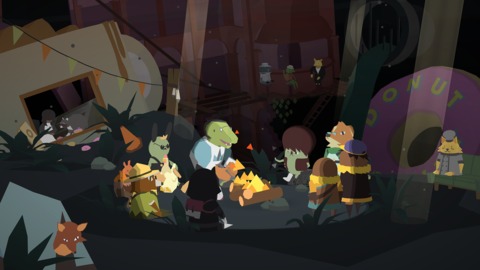
Donut County (IGotW 157), conversely, still does the small dustbowl township thing but in a fashion where boredom and slow-paced living makes way for a sudden surprising turn when holes start appearing and swallowing up everything. Each level is a vignette told in flashback, as the huddled survivors sit around an underground campfire and share stories of when the hole came to their home or workplace (or both) and left nothing but a huge crater behind. Of course, it's all due to an avaricious band of raccoons fascinated by the "trash" that everyone else generates, and the way they interpret the world around them (via a "trashpedia") is where the game gets a lot of its laughs. The Katamari Damacy style gameplay is perfunctory - with the game's limitations, there's only ever one "route" as you go from a small hole in the dirt to a giant all-consuming abyss - but there's enough bells and whistles to make the brief adventure a compelling one while it lasts.
Princess Remedy in a Heap of Trouble and Princess Remedy in a World of Hurt (IGotW 158) are a pair of games that Ludosity put out around the time of their breakout game Ittle Dew, and like that game it takes a very specific slice of the early top-down Zelda games - with Princess Remedy specifically, that's the combat - and builds an adventure full of snappy writing and incidental exploration of a semi-open world. Also remarkable is the game's ZX Spectrum aesthetic: a lot of harsh neon against black and a very tiny natural screen resolution. They're slight games, hence my doubling them up, but entertaining nonetheless.
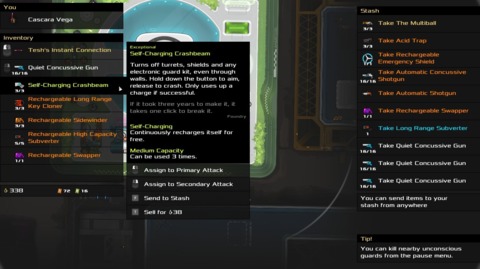
Heat Signature (IGotW 159) is a roguelike "tactical espionage action" game that I didn't anticipate I was going to enjoy as much as I did, but it does a great job of bringing out the player's resourcefulness and spontaneous thinking with its many procgen spaceship-raiding missions. A steady dripfeed of new gadgets and weapons that can change your fortunes for the better, and an encouragement to keep biting off more than you can chew by picking missions rated as "audaciously" difficult, makes for a ballsy game that is so satisfying when everything goes your way and hilarious when it does not. If all else fails though, you can bust a window open, float off into space, and try your luck elsewhere.
Hey Everybody, It's the Tuesday Slot
Getting Something Off My Chests
A Bracer's Impact
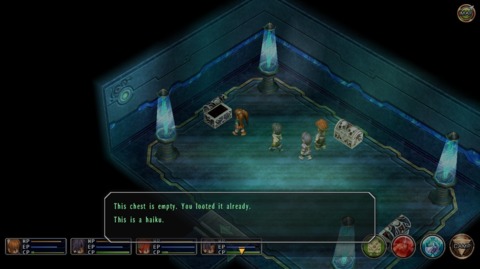
My new blogging focus this year are smaller pieces based on whichever games I happen to be playing, and most of February was taken up by my triumphant return to the Legend of Heroes franchise. Along with Ys, Falcom's been growing a small but loyal fanbase with these slightly dated looking turn-based RPGs that nonetheless manage to hone in on what us long-time genre proponents like most about our chosen games. Specifically for Trails in the Sky Second Chapter, there's an excellent script and characters and some intriguing combat mechanics at its core; the former was a huge labor of love by XSEED, who localized something like ten novels' worth of writing (as well as being a long RPG with a lot of talking, there's a huge amount of conditional script also; dialogue that can be different depending on the player's actions and the order they choose to explore the world and meet people), while the latter takes the relatively crude blueprint of its previous game, Trails in the Sky First Chapter (or FC), and figures out ways to expand on it to add more wrinkles and features that the player must take in stride. It makes the battles that much more exciting and eventful, if also considerably more challenging.
These two blogs cover, respectively: a highlight of how fun the localization with by covering the comments produced by chests the player can revisit after taking their contents, many of which are either meta jokes, references, or passive-aggressive chastisement of the player's loot-lust; and the second looks at the game's distinctive mission-based progression, where main and side-quests are wrapped up in the protagonist's profession as a "bracer" - a community-focused mercenary who keeps the peace, hunts monsters, resolves disputes and crimes, and other matters that require a trained expert. It's an exceptional game that I could word vomit about for months if I was a little less disciplined.
Video Games! That's Where I'm a Viking
Inspired by a playthrough of the 2018 God of War reboot, which transplants the angry Spartan deity Kratos into a primeval version of Scandinavia where the Aesir and Vanir and Jotunn are still interfering with mortal lives, I decided to look at other games that take Norse mythology into their world-building. While not an expert on early Germanic belief systems by any stretch, it's obvious to see how faithfully certain games recreate the legends of that culture in games; from simply borrowing the iconography of horned helmets and runes to really doing deep dives into what the ancient Norse believed in and how they lived. Some feel more genuine than others, even to the untrained eye, and it was curious to see how deep into the weeds God of War got with legends of the Giants and the finer details of Ragnarök given that the original games only ever had a tenuous grasp on Greek mythology at the best of times. It definitely felt like the series has matured considerably, albeit without necessarily letting go of the juvenile amount of gory killing animations (how many more times do I need to see severe trauma to something's mandible?).
The Games of February
The Outer Worlds
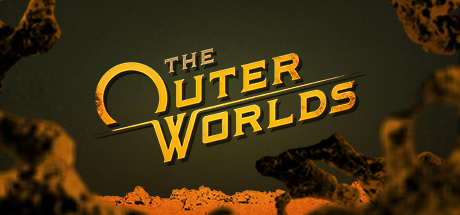
I polished off The Outer Worlds in the first week of February, and I don't really have much more to say about it since last month's round-up. I do think it's an exceptional game that plays to Obsidian's strengths, and being unshackled from the Fallout universe probably did them some favors in the long run. When I say "Obsidian's strengths", I'm referring to their capacity for world-building. It's a muscle they've been exercising a lot over the past decade with Tyranny and the Pillars of Eternity series, and I'm thankful that they've grown big enough that they're allowed to play in their own bespoke playgrounds rather than someone else's. The Outer Worlds benefits from their own keen eye for detail and a cynically amusing take on capitalism taken to the nth degree.
Gameplay-wise, I think switching out VATS for the slow-motion rapid-fire mode is an adequate replacement that allows you to command the battlefield to a similar degree, and I adore the increased focus on companions and their contributions - by way of powerful "companion abilities" that you can trigger after a modest cooldown - because hanging around with them listening to their quips is a big part of the experience that, unwisely, had always been treated as an incidental bonus in the Fallout series. It's a little bit of a shame that they're so disincentivized in the game's ludicrous but intriguing "Supernova" difficulty, which in addition to a lot of the survival mechanics from Fallout: New Vegas's highest setting (must eat, must drink, must sleep regularly, can only save on the player's ship), also has permanent companion death that - when coupled with the high enemy difficulty - means they're likely to perish forever the first time you get into a fracas.
I've a lot of praise for the game, but I think on my personal Obsidian rankings it's probably a little lower than the Pillars games (if a little higher than New Vegas, if partly only because it was functional out of the gate). Pillars of Eternity's world feels that much more elaborated upon; The Outer Worlds meanwhile, can feel a bit surface-level as I imagine building a huge 3D universe with as much detail is exponentially more demanding. Still, there are few RPG developers out there operating on the same level of narrative dedication and mechanical finesse as Obsidian, and now they have the resources to make their own IPs and can afford the extra time needed to make sure they're in good shape before shipping out it's an exciting new era for them. Just a shame I won't be able to enjoy any of those future games on PS4.
The Legend of Heroes: Trails in the Sky SC

Talking of spectacular RPGs, I've been blessed by my impulsive decisions this month, choosing to tackle the next game in The Legend of Heroes series after a Trails in the Sky FC playthrough some six years ago. I really shouldn't have waited: not only is The Legend of Heroes: Trails in the Sky Second Chapter an excellent evolution of the former, but I've allowed the series to really pile up - there are six "Trails" games available currently, and rumors suggest we'll be getting remastered and localized versions of two more in the near future. Trails in the Sky follows Estelle Bright: a feisty yet vulnerable "Bracer" (an adventurer for hire, sorta) with a close team of compatriots and a straight-shooting yet empathetic attitude that draws people to her. The game's brilliant script makes her strengths apparent to everyone but her, making her an endearing central character who finds her way to completing her arc in this sequel, leaving the third Trails in the Sky in the able hands of a new character introduced here (Kevin Graham, a dorky flirtatious Van Helsing type with a hidden ruthless streak; a character I'm going to enjoy learning more about when I play Trails in the Sky the Third).
Like The Outer Worlds, the ensemble and the interactions between them is what makes the game shine, especially where Olivier Lenheim is concerned. The pansexual libertine pistol-packing bard is a delight from beginning to end, and this game features the perfect arc for his character. As an Erebonian noble, I was happy to learn that he'll continue to show up in the Trails of Cold Steel series (which is set in the same Erebonia), making everyone vaguely uncomfortable with his tunes and flirts. The rest of the team is a little more boilerplate, but still appealing due to the sharp writing and elaborate backstories which, naturally, are tied to a lot of the recurring villains introduced in this sequel.
Secondary to the script, but only barely, is the game's newly tweaked battle system. Trails in the Sky is a turn-based system that relies on character stats and possibly a bit of dice-rolling to determine the turn order. However, a major aspect of this game - as it was in Grandia and Child of Light - is your (and the enemy's) ability to interrupt or delay the turn order of their opponents. A spell, for instance, takes a little while to cast and can thus be cancelled out if you have a character able to do so in the gap between when the spell starts and finishes being cast. Delaying a powerful enemy's turn as often as possible can be key to some of the tougher boss fights; it's usually more worth your while to ensure that turn never comes than to eat its damage and spend the next few rounds healing everyone back up. Then you have aspects like the elaborate "quartz" customization system, where equipping colorful gems confers various effects and also determines which spells you are able to cast - combining earth and water, for instance, allows for resurrection spells while wind and water provide group heals. Finally, you have the versatile "crafts": these are special skills that a character can use with a stat that increases as you fight, so while you can't use them every turn they're available often enough that you should consider using them to quickly finish a battle, or at least quickly take down the most dangerous enemies. One fun new wrinkle is that bonuses randomly pop up on the turn order queue: these can heal you, restore some of your mana (EP) or craft points (CP), add to your strength that turn or ensure that all hits are critical, and other positive effects. The issue is that these benefits can also go to the enemies, and a boss healing even 10% of their total HP can extend the battle another round or two. It's another reason why the player should learn how to manipulate the turn order to their liking.
I realize most people who aren't all that fascinated in JRPGs given the number of recurring tropes and an emphasis on aspects they consider less important - a lot of RPG players prefer creating their own characters and party from scratch, for instance, which is a rare concept in JRPGs - will almost certainly sleep on this series, especially as the newer games coming out are so far ahead in the story - the localized Trails of Cold Steel III launched earlier this year and is the eighth to bear to the Trails name - but these are old-school JRPGs working on an absolute top level. Honestly, even if you're not impressed by what you see, I urge you to check out the original Trails in the Sky trilogy, and to stick with it even if the first game turns out to be good but not great in your estimations. The way the second builds from the first, both narratively and mechanically, is nothing short of incredible. I'm so on board for Sky 3rd, Azure, Zero, Cold Steel, and beyond (and Ys IX, as soon as Falcom finally announces the localization).
God of War
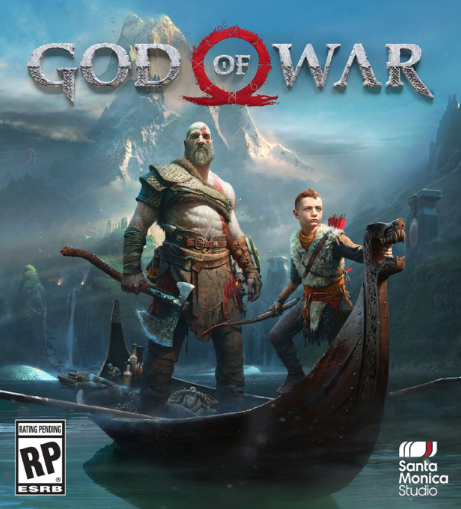
Sometimes you want an in-depth RPG system that you can slowly master over the course of a 50 hour adventure, but sometimes you just want to throw an axe at monsters and then recall it to your hand in a flash. That isn't to say that this God of War is an uncomplicated hack n' slash action-adventure game like its predecessors, but there's a certain visceral simplicity to its approach to problem-solving that I'm into after a month of carefully considering my next move. God of War is a little more open than its forebears but only slightly; each part of the game involves a linear trek from one destination to the next, with the exception being the enormous Lake of Nine that acts as the game's hub. Kratos acquires new abilities as the game progresses, usually different arrow types for his son Atreus, that will occasionally necessitate backtracking for collectibles and the cash needed for new gear and upgrades, but just following the story it's a similar case of a series of combat encounters linked together by some wall-climbing traversal and mechanical puzzles (levers, gears, traps, etc.).
It's a formula that works well enough, and God of War succeeds largely because every single one of these aspects has been tweaked to perfection. Most of is thanks to the wonderful Leviathan Axe: a frost-powered chopper that can magically return to the wielder's hand, allowing Kratos to hit something with an axe, leave it embedded in some poor dragr's face, and then recall it to violently pull it out of its current holder to do even more damage. You can also throw, miss, and then get the hit as it flies back to you. With two attack buttons (slow and heavy), chains that use a combination of the two, a shield parry and bash, an alternative unarmed combat style that builds up the stun meter (allowing for vicious grapple attacks) faster at the cost of damage, two "runic" attacks that recharge over time and can cause some serious damage, and asking Atreus to lend his assistance with arrows that can also stun - each fight has a dozen ways to approach it, depending on what you're fighting, the skills and gear you have, and your preferred style. When Kratos eventually gets his second set of weapons towards the end of the game's story, it almost feels like when the second course arrives while you're still chowing down on the first.
However, the true strength of this particular God of War is how much more seriously it takes itself, and not in the edgy grimdark way it has in the past with Kratos's rage and various tragedies. There's a stronger emphasis on emotional weight, on characterization, on world-building and NPC interaction, on establishing an atmosphere, and none of it sacrifices the best parts of the older games, such as the spectacle and the ridiculous sense of scale that comes with contending with gods and other colossal entities of unimaginable power. Your first meeting with Jormungandr, the enormous World Serpent, is nothing short of breathtaking, and spotting his enormous head hovering over the horizon whenever you're exploring the Lake of Nine always has a humbling effect. Kratos and his fraught relationship with his half-God son Atreus, his desire to do right by the boy while also finding it difficult to relate to him and harder still to tell him everything he wants to know about Kratos and his past, is one that the whole game was wise to build itself around. I liken this evolution of Kratos as a sympathetic character akin to that of B.J. Blazkowicz of the newer Wolfenstein games; letting the players in on his personal pain and misgivings, even while he spends most of the game in his usual rage-filled silent killing machine mode.
So yeah, that's a big thumbs up for Dad of War from me; an opinion only two years too late to matter.
Other Distractions
Didn't I Say to Make My Abilities Average in the Next Life?! / Watashi, Nouryoku wa Heikinchi de tte Itta yo ne!
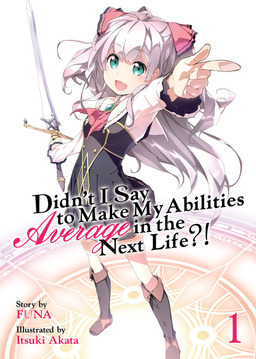
To commemorate the birth of an official anime forum on Giant Bomb, something I'm sure will give us moderators conniptions for many months to come, I decided to give another Isekai show a shot after a recommendation from genial host, comedian, and professional on-stream model-builder Pat Baer. While not as amusing as KonoSuba (though almost as lascivious somehow), DIStMMAAitNL?! - long titles are apparently a thing with Japanese light novels - still has some funny moments and clever twists. For one, despite being a beautiful and overachieving schoolgirl in her previous life, the heroine of this series is still somehow a huge otaku dork who frequently references things her companions lack the context to understand. The joke is, of course, that despite her perfectly reasonable request to be "average" in all attributes to make it easier for her to be relatable and have friends in her new life, the powers that be decide that means the median average of every entity in the world, making her half as powerful as a near god-like "elder dragon" and thus far exceeding a regular human's abilities several thousand times over. Thus, she can effortlessly win every swordfight with insane speed and cast spells without needing to study, putting her in the same situation she was in before.
These shows always feel a bit meandering - the party is far from the top tier by the end of the first season, to give them an endless number of sequel seasons in which to power up until interest in the show's single gimmick inevitably peters out - and watching several in a row kinda feels like playing the first few hours of a bunch of generic fantasy RPGs with more meta commentary and jokes about bust sizes. I can see why those who consume every new anime that appears are already tiring of the Isekai genre and are drawn more to shows with off-beat themes and aesthetic direction like Eizouken and Promare.
I've also been watching Star Trek: Picard (it's not great) and Altered Carbon Season 2 (which is actually all right so far), and I'll have more to say about those after I've seen them in full.
Looking Ahead
March has a couple of very big, greatly anticipated releases on the 20th and it feels like the rest of the month is holding its breath for their arrival. Still, it's at least far busier overall than January and February has been and there's much coming out in this thirty-one day block that I am personally looking forward to playing:
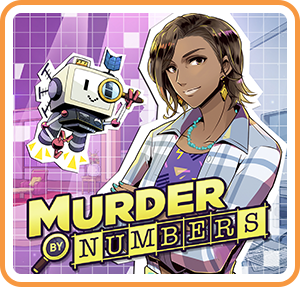
- The 3rd extends the fighter-heavy month we had with February with the official English localization of Granblue Fantasy: Versus, as opposed to the Hong Kong also official English localization that almost all of Giant Bomb's science team has imported already. I'm not an anime fighter guy, and doubly so when I've no experience with the original franchise (unlike, say, ASW's Persona Arena games), but this one does seem to be causing a lot of commotion. Be curious to see how much like its predecessor gacha mobile/browser game this fighter offshoot becomes, selling new characters and movesets in lootboxes and the like.
- The 5th sees the release of the long-awaited Black Mesa, a fan-created modern remake of Valve's Half-Life. I liked Half-Life plenty back in the day - I particularly recall liking the roundabout critical path through vents and across pipes the player had to take, which despite being entirely planned out by the level designers still felt like a hurriedly improvised route - but I'm not sure I care enough to play through a remake of it, especially if they decide to charge money (depends on how involved Valve is, I guess, since they certainly won't let them profit off this).
- The 5th also sees my most anticipated game this month - sorry Doom and Animal Crossing fans - with the Ace Attorney-esque detective visual novel and picross hybrid Murder By Numbers. There's a chance this game doesn't pan out well, as other picross hybrid variants like PictoQuest were fairly underwhelming, but I have hope it's somehow the sum (or more so) than its two disparate parts. I'm also of a mind to encourage anyone to stick picross in their games somehow; how long will it be until we see an explormer-picross game? Maybe one where you're drawing the world map via picross?
- Speaking of explormers, the 11th ushers in the new Ori game from Moon Studios. I loved Ori and the Blind Forest for its painterly visuals and fluid, challenging platforming, and I hope Ori and the Will of the Wisps is able to match the same highs and even surpass them. It feels like we've been hearing about this game for a long while now, so it's hopefully polished to a fine sheen. Looking forward to it immensely.
- With the 13th, Nioh 2 rises from the water like a mischievous kappa for another loot-based Souls-like with a heavy emphasis on weapon types and combat stances. The original Nioh was an intimidating game to learn and more so to get decent enough at it that I could finish it, so I'm hoping my past experience means I can hit the ground running with its sequel. It's definitely one of the more content-rich of the FromSoftware pretender franchises, and this sequel looks incredible to boot.
- The 20th will, of course, summon from the depths of Hell one of the most terrifying and violent games ready to tear our fragile minds apart like tissue paper: Animal Crossing: New Horizons. And Doom Eternal lands on that day as well, along with the revamped Doom 64 which will be included in some pre-order deals with its bigger brother. Truth be told, I'm much more looking forward to Doom Eternal, but I think the surprise success of Stardew Valley was in some part due to everyone jonesing for another super chill "life simulation" game like AC, so New Horizons will get a lot of air time on GB and elsewhere I'm sure.
- The 23rd will shepherd in the PC port of Trails of Cold Steel III - I'm still a long way from catching up - and the Half-Life: Alyx VR experience as the first official release in that franchise for what must be close to thirteen years. Definitely curious about it, but only so much: VR doesn't interest me in the slightest, as a medium that doesn't record well for demonstration purposes and one that I neither have the cash or space to enjoy myself. Still, though, new Half-Life lore is exciting enough with or without the Freeman.
- It's an odd coincidence given last Friday's GBE stream, or maybe not since it might explain why it was on Vinny's mind, but there's a new Bubble Bobble game coming to Switch at the end of March (in America at least; it's been out a while already here in Europe). Bubble Bobble 4 Friends revamps the original with new graphics and music but a similar gameplay bedrock, and also includes the arcade original as an alternative mode. I guess if you have a nostalgic craving for buck-toothed dinosaurs blowing bubbles this might serve as a welcome return to the cave of monsters.
- Along with Bubble Bobble 4 Friends on the 31st, we'll also have the Persona 5 Royal remaster. It wouldn't be a Persona game without some enhanced special edition coming mere months afterwards, as it was for Persona 3 FES and Persona 4 Golden, and likewise this remaster adds a new character and many more scenes to bulk up those days where little seems to happen (along with a special social link for a major story villain). Unless they fixed those late-game dungeons I think I'm good on ever revisiting it, but it'd probably a good excuse to jump in if you've somehow resisted joining the Phantom Thieves of Hearts before now. (In other JRPG remaster news, there's a Langrisser I & II remake for Steam and consoles? If you like your Fire Emblem but wished it felt more like a war with disposable troop units and such, it wouldn't be a bad idea to check it out when it launches on the 10th.)
- Finally, it looks like we might be getting an early access period for the long-awaited Mount & Blade II: Bannerlord at the end of the month. The original Mount & Blade games had "early access" written all over them even while they were ostensibly finished products so I shudder to think how incomplete this sequel will look, but I can't say I'm not fascinated to see those huge battles with some decent graphics and framerates. If GB gets it running on peak settings through their resident power rig, that might be an Unfinished video to look out for. Just have to hope they remember the game exists without Drew or Dave Snider on staff (Ben seems to have a thing for games of that sort though, if Mordhau is any indication).
Sorry for the long blog this week! It's a rare month where I'm able to get through three games I want to talk about endlessly, and despite the lack of much else happening this month (give or take a vitally important election process and a potentially devastating global pandemic, but those aren't video game related so who even cares?) I managed to squeeze a lot into it. I wish you all a bountiful spring, even if it's looking grimmer by the second. Hug your Isabelles tight and try to power through it, I guess.
